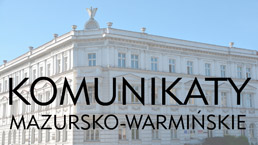Current issue
Online first
Special issues
Archive
About the Journal
Editorial Board
Editorial Council
Reviewers
Editorial guidelines
Publication ethics
Guidelines for reviewing
Remarks on “ghostwriting”
Copyrights and Open Access rule
GDPR Privacy Notice – for the authors of articles sent for publication in the "Komunikaty Mazursko-Warmińskie ("Masuro-Warmian Bulletin")
Contact
Price list
Polemics as a Symbolic Capital Defence Way in the 18th Century in Prussia: the Case of Christian Gottlieb Mielcke and Gottfried Ostermeyer
1
Institut of Lithuanian Literature and Folklore;
Online publication date: 2021-07-23
Publication date: 2021-07-23
KMW 2021;312(2):223-240
KEYWORDS
Lithuanian LiteratureLithuanian LanguagePrussian LithuaniaCultural FieldCultural CapitalSymbolic CapitalPolemic
TOPICS
ABSTRACT
The research was based on the methodological premises of the cultural capitalism theory, formed by French sociologist Pierre Bourdieu, where a cultural field was perceived as a battle-field of interested actors (agents) seeking to accumulate as large as possible cultural and symbolic capital. The interests of Mielcke and Ostermeyer clashed in the second half of the 18th century, when both of them started working on the same cultural project: the preparation of an updated Lithuanian hymnal, based on the principles of rationalism and the Enlightenment theology. As Ostermeyer was the first to prepare the hymnal and to publish it on governmental funds, Mielcke could not accept the fact that he was circumvented by an ambitious newcomer in the field of Lithuanian culture where his own family had been among the predominating ones for a number of years. In the criticism of Ostermeyer’s hymnal, Mielcke sought to present him as an impudent intruder who, despite significant symbolic capital accumulated in other areas, did not have sufficient cultural capitalisation in the field of Lituanistic Prussian culture and who had a too poor command of Lithuanian. Mielcke succeeded in stopping Ostermeyer’s decisive engagement in the field of Lituanistic activity. Nonetheless, in the fight with the opponent, Mielcke also lost a significant part of his accumulated symbolic capital.
We process personal data collected when visiting the website. The function of obtaining information about users and their behavior is carried out by voluntarily entered information in forms and saving cookies in end devices. Data, including cookies, are used to provide services, improve the user experience and to analyze the traffic in accordance with the Privacy policy. Data are also collected and processed by Google Analytics tool (more).
You can change cookies settings in your browser. Restricted use of cookies in the browser configuration may affect some functionalities of the website.
You can change cookies settings in your browser. Restricted use of cookies in the browser configuration may affect some functionalities of the website.




